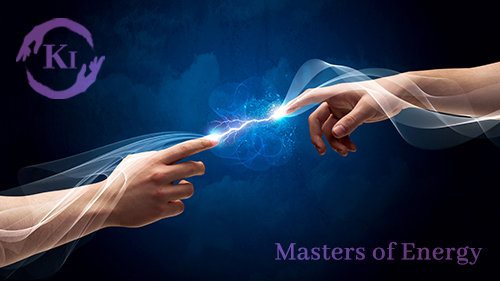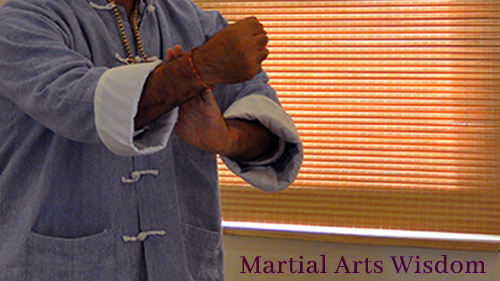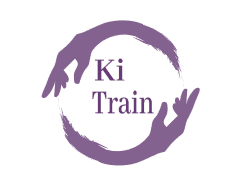Ki Train is a practical school of thought that teaches people how to better manage their vitality in order to create a better life. Ki Train is a transformational method based on simplicity and common sense.
Ki Train Method is about effortless living!

Change is one of the hardest things we face in life. Yet, life in our universe of duality is composed of both YIN and YANG energies, and therefore it is never constant. The only certain thing in this Universe is change itself. From a higher perspective, change is the means for transformation, and ultimately evolution (or in some cases, involution).
Ki Train is a transformational method based on simplicity.
“It takes a smart person to transform a simple thing into a complicated one and a genius mind to transform a complicated thing into a simple one”. – Albert Einstein
Small steps and simple habitual changes are key to igniting the momentum that leads to complete life transformation.
Ki Train algorithm involves three main stages in the following order: knowledge, experience and wisdom.
1. Knowledge/Awareness
Are you searching for wisdom? Do you think reading a book will make you wiser? Do you believe attending a course will improve you as a person? How about a simple and honest discussion with your guides, teachers, parents, friends or even complete strangers?
All of the mentioned methods are great in achieving awareness and better knowledge. We can learn from books, movies, documentaries. We can learn from talking to different people who have more experience than us, more knowledge.
An advanced textbook can be a great source of specialized information. But then, so is a simple conversation with someone who is more experienced in a certain aspect of life. We live in a world filled with vast amounts of information, much of which is available at the click of a button. It is not for no reason that a new expression has been added to the dictionaries: the verb “to google”.
In stage 1, the main focus is gathering information through reading, studying, listening, watching and other forms of learning.
2. Cultivation/Experience
Have you been through a trauma? Won a competition? Received a medical report indicating illness? Been promoted? Experienced the death of a loved one? Achieved something hard to attain? Have you been disappointed by somebody only to be pleasantly surprised by someone else soon after? Just got divorced?
No matter how much information is gathered on a subject, an intellectual understanding of the subject is of no comparison to the actual experience of it. We change profoundly through our personal experiences.
Every aspect of Ki Train Algorithm has a part about several cultivation exercises designed to help you experience the theoretical part.
The verb “To Cultivate” is normally used in agriculture, but as I truly believe that plants are our distant relatives, I choose to use this word to describe our own growth process.
3. Wisdom/Being
Wisdom is the direct consequence of going through stages 1 and 2, combining both knowledge and experience.
In Romania we have an old saying, loosely translated as: “if you don’t know any old people, you should find some”. In other words, old age is (mostly) synonymous with wisdom. This is due to many years of gathered experience and knowledge.
Interestingly enough, for people working with children, whether parents or teachers, including myself, it is becoming increasingly noticeable that some children are born with a considerable amount of wisdom, displayed through their behavior, personality and skills. Could this possibly be the result of past life influences or genetic memory?
The Wisdom of Martial Arts
Every physical learning endeavor requires a certain level of knowledge combined with experience. The Martial Arts, in particular, are a brilliant metaphor for understanding how to achieve wisdom, or in other words, how to become a wise master. They provide a very practical means to achieve mastery of self. It is no coincidence that many wise masters of Eastern history and legend are also martial artists.
The Founder of Aikido, the Japanese master Morihei Ueshiba, is the perfect example of one who has achieved life mastery through martial arts. Born in 1883, Master Ueshiba’s experience of tough ordeals through war, conflict and dire circumstances led to a transmutation of his perceptions. Experiencing fierce struggles at all levels (mental, emotional and physical) and overcoming them, inspired Master Ueshiba to write “The Art of Peace”, a masterpiece that continues to inspire to this day.
When learning a particular self-defense technique, we start by watching the teacher performing it. Through watching we become aware of the method. Then, we practice the same technique with different partners to experience the method. The beauty of Aikido is that every attack and the resulting technique is different every time. Every action can produce multiple potential reactions. Just like any situation in life: a problem can have many solutions. A classic example is how every person feels about the weather. No matter what their reaction is, the weather will not change to their preference.

In Martial Arts, repetition of the same technique, over and over again, plays an important role in mastering a technique. There is a clear difference between knowing and mastering a technique. Once mastering the technique, the practitioner becomes “efficient”, which, in real life, is synonymous with “Wisdom”.
